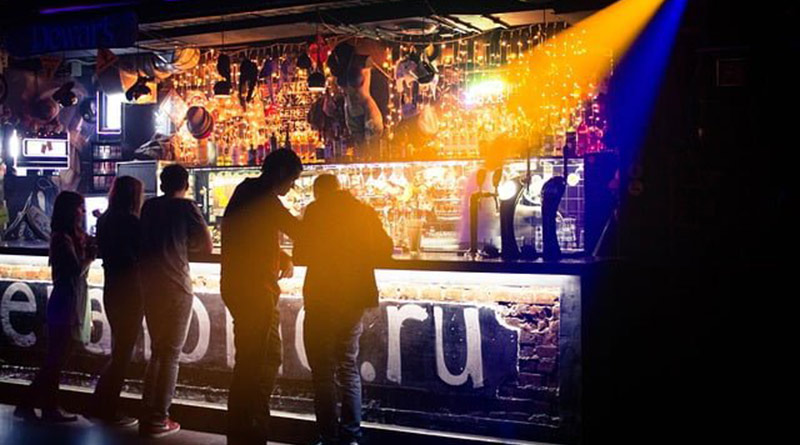Tax Shock Threatens Fragile Nightlife Recovery

While nightlife venues have sought to adapt to changing consumer behaviour and evolving formats such as experience-led socialising, to some success, the overall numbers of night-time venues – particularly independent – remain drastically below pre-pandemic levels.
New stats from May’s Night Time Economy Market Monitor paint a picture of a sector far from ready for significant tax and cost rises from the Chancellor’s Autumn Budget, which came into force in April. Evidenced by business and consumer research, the sector is clear that the UK’s nightlife economy – one of the country’s largest cultural industries and employers of young people – continues to face an escalating crisis.
Key Findings from the Second Market Monitor:
- Independent businesses have suffered disproportionately with 15.8% closed since March 2020, compared to 3.2% for managed groups – with a modest 0.9% growth in the past year failing to offset concerningly high closure rates.
- While there was a 5.4% annual increase in nightclub numbers – the first positive figure since 2020 – the sector remains down in numbers by over a third (34%) in total – the equivalent of three closures every week for five years.
- The night time economy (6pm-6am) has grown by a very modest 0.2% year-on-year, but is still 13.6% smaller than pre-pandemic (March 2020).
- Evening economy venues (5pm–11pm) are up 4.9% year-on-year, but remain well below pre-pandemic levels after a 7.7% five-year decline.
Michael Kill, CEO of the NTIA, said:
“While our sector is remarkably resilient – modest figures of growth should not be mistaken for recovery. What we are seeing is the barest flicker of life after five years of near-collapse. A 5% growth in nightclubs sounds positive – until you remember we’ve lost 34% of them since 2020.”
“The reality is the night time economy remains in a deep crisis of the Government’s doing – most recently by the Autumn Budget. Without urgent intervention, the small signs of resilience we’re seeing now will be put out entirely – and disproportionately so on independent venues deeply cherished by and so valuable to communities.”
“The Government must urgently address structural issues—from public transport and safety to the additional tax burdens introduced this April. Appetite for meaningful, shared cultural and social experiences is strong. It’s up to policymakers and industry leaders alike to ensure the infrastructure exists to support it.”
Karl Chessell, Director – Hospitality Operators and Food, EMEA at CGA by NIQ, said:
“These numbers show how hard businesses in late-night hospitality have worked to build back from the turmoil of COVID-19. They have also adapted very well to consumers’ changing leisure needs and are shaping a new and dynamic night time economy. However, extra costs and ongoing inflation, alongside hesitant consumers spending, means many businesses’ cash reserves are rapidly being depleted. Urgent and targeted action is needed to tackle this jeopardy and ensure hospitality can help kickstart an economic revival.”
Industry Flash Survey – Growing Fears for Jobs and Survival
Underpinning NTIA’s words are a flash survey of over 500 nightlife businesses revealing:
- Over 90% have already cut or plan to cut staff, hours or essential investments.
- 40% expect to close within six months post-April without urgent financial support.
Young People’s Concerns
Further, an April nationwide survey of 2,000 18–30-year-olds by Obsurvant highlights threats to the night-time economy’s viability:
- 71% cite poor transport as a barrier to attending late-night events.
- 55% report safety concerns, including drink spiking, deterring them from going out.
- Nearly 60% say there’s less pressure to drink alcohol – reflecting changing social habits and increased competition for consumer leisure time.
What Nightlife Needs
While May’s Night Time Economy Market Monitor paints a nuanced picture, suggesting stabilisation and innovation are returning vibrancy to nightlife – increased costs (NTIA estimates averages between £35,000-£100,000 per annum), public safety, infrastructure and regulatory challenges present clear downward pressures on volatile and fragile consumer spending and late-night trading.
The NTIA urges policymakers to recognise the night time economy as a critical pillar of the UK’s social, cultural, and economic fabric – and to work collaboratively with the industry to ensure its future.
The NTIA are clear that this is not a time for complacency, and its resilience has a breaking point fast approaching, underpinned by irrefutable evidence. As such the NTIA calls clearly for the Government to act or face UK nightlife’s irreversible slide into extinction.
The NTIA and sector partners continue to call for immediate support around:
- VAT reduction for hospitality and events.
- Relief on business rates, National Insurance and energy costs.
- Investment in late-night transport and public safety.
- Formal recognition of the night time economy as a vital economic and cultural sector in national policy.
